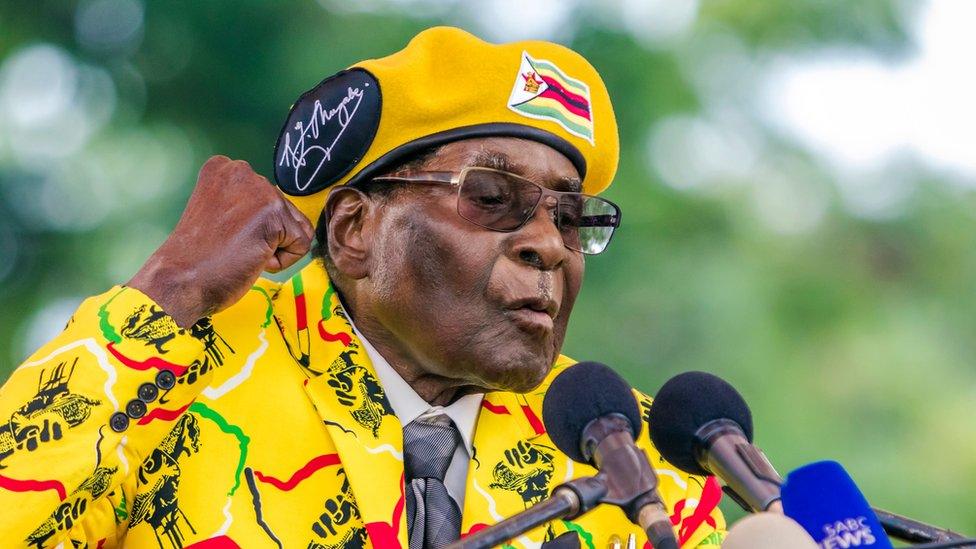Have Zimbabwe's generals turned into democrats?
- Published
Sibusiso Moyo: Zimbabwe 'will not repeat its mistakes'
In his well-cut suit, with outstretched hand and beaming smile, Sibusiso Moyo is the very picture of a modern politician.
He speaks softly, smoothly and pauses to listen as if he had spent years on campaign trails listening to the supplications of constituents. His desk is covered with papers waiting to be read and signed.
We meet at the start of what will be another long day for Zimbabwe's foreign minister. Waiting in another room is the Russian trade delegation.
There will be more meetings after that for Mr Moyo: diplomats, civil servants, and the possibility that the phone on his desk will ring with a summons from President Emmerson Mnangagwa - whose office is five minutes away in another part of the building.
The president has declared Zimbabwe "open for business" and it is Mr Moyo's job to make sure investment starts to roll in. This is after all the "new" Zimbabwe. But perhaps "newish" would be a better description.
After all, the president was for decades a loyal supporter of former leader Robert Mugabe, whom he ousted last November after 37 years in power.
Former generals who were all complicit in Mugabe's era of oppression now occupy key positions in the Mnangagwa cabinet.
Many white farmers in Zimbabwe were forced to leave their land under Robert Mugabe
In his previous incarnation, Foreign Minister Moyo was Maj-Gen Moyo and commanded army operations in the provinces during past elections.
On the night of the coup d'etat, on 15 November, which would remove Robert Mugabe from power, it was Maj-Gen Moyo who appeared on television, in uniform, to ask Zimbabweans to remain calm and assure them that only "criminals" were being targeted.
Official circles in Zimbabwe frown on the use of the word "coup". But without the army's intervention, there is no way Mr Mugabe could have been ousted.
Military might opened the way for a rebel faction led by Mr Mnangagwa in the ruling Zanu-PF party to take power.
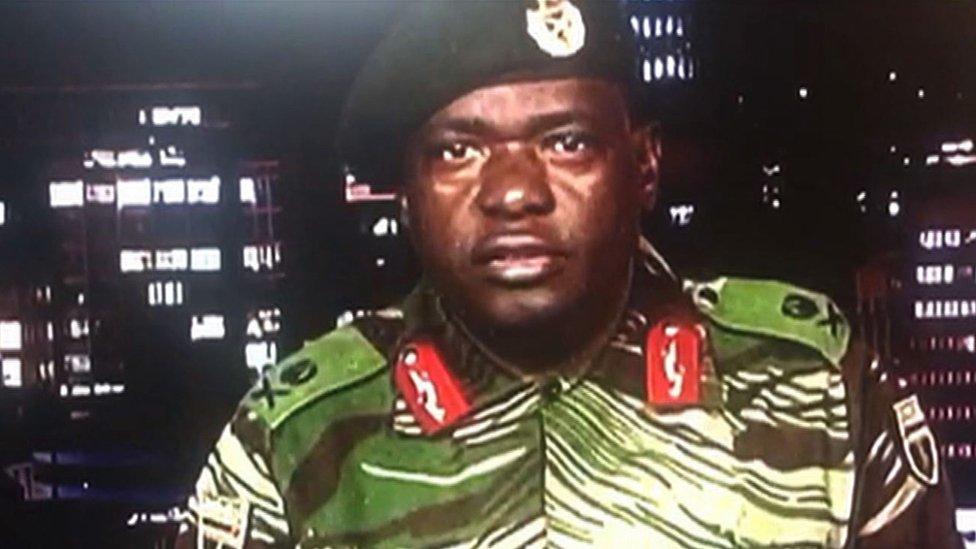
Maj-Gen Moyo became the face of the military takeover, which ousted former President Mugabe

Who is Emmerson Mnangagwa?
Emmerson Mnangagwa: Who is the man known as the ‘crocodile’?
Known as "the crocodile" because of his political shrewdness - his Zanu-PF faction is "Lacoste"
Received military training in China and Egypt
Tortured by Rhodesian forces after his "crocodile gang" staged attacks
Helped direct Zimbabwe's war of independence in the 1960s and 1970s
Became the country's spymaster during the 1980s civil conflict, in which thousands of civilians were killed, but has denied any role in the massacres, blaming the army
Accused of masterminding attacks on opposition supporters after 2008 election
Says he will deliver jobs, and seen as open to economic reforms

I was present in the capital Harare to watch delighted crowds hoist soldiers onto their shoulders when news of the fall of former President Mugabe filtered onto the streets.
Back then, Maj-Gen Moyo and his comrades were the heroes of the hour.
There were not many Zimbabweans openly asking why they hadn't acted before then or why the army had so enthusiastically supported the brutalities and corruptions of the Mugabe era for so long?
Now, with an election due on 30 July, it seems like a good time to ask the question: why should people believe that Mr Mugabe's old supporters have transformed into democrats?

Read more:

Foreign Minister Moyo is measured in his reply.
"I can assure you the president is a different person. He is now the chief executive of the country. He has learned. He has had the experiences of where things went wrong and this is exactly where he is correcting issues."
Hundreds of international election observers and foreign journalists are expected in Zimbabwe for the elections.
Their presence could be crucial in influencing whether the polls are free and fair and ultimately whether the promise of a genuinely democratic dispensation is met.
In a country that has suffered so much from election violence in the past, the patronising notion of an election that is "good enough for Africa" will not stand.
Human rights groups strongly criticised election observers at the Kenyan elections last year for initially crediting the polls as "free, fair and credible", in the words of former US Secretary of State, John Kerry.
They were embarrassed when Kenya's Supreme Court later ruled the poll "neither transparent nor verifiable".
This year, they will be watching closely for any attempts at rigging in Zimbabwe.
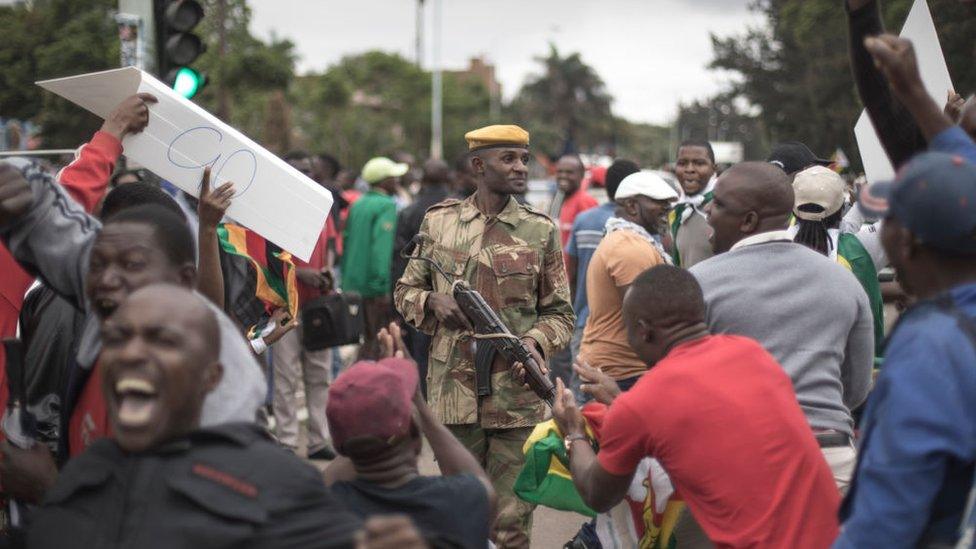
Thousands of people celebrated the army takeover in Zimbabwe
Diplomats and opposition politicians in the country have worried over the late issuing of the voters' roll - key to a fair election. Human Rights Watch has been logging incidents of intimidation by ruling party supporters in the rural areas.
There is no comparison - so far - with the terror of the Mugabe years - when elections often meant open season on opposition politicians. There were killings, kidnappings and widespread torture.
I ventured tentatively onto this year's campaign trail. After all, I was one of a number of BBC reporters banned from Zimbabwe until the fall of Mr Mugabe. Journalists, human rights activists, opposition politicians were all targets of the old regime.
It was an extraordinary experience to watch the opposition MDC (Movement for Democratic Change) leader, Nelson Chamisa, campaign outside a police station in rural Masvingo province.
Those who might once have attacked him could now only watch from behind the wire fence of their barracks.
Zimbabwe's hopes of definitively ending international isolation depends on the police and soldiers abandoning the old brutal habits.
- Published24 May 2018
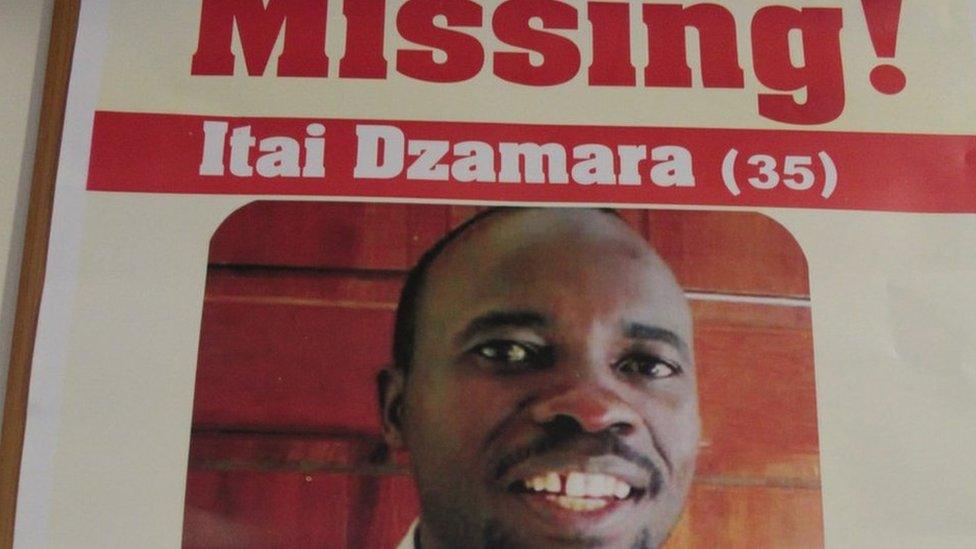
- Published22 November 2017
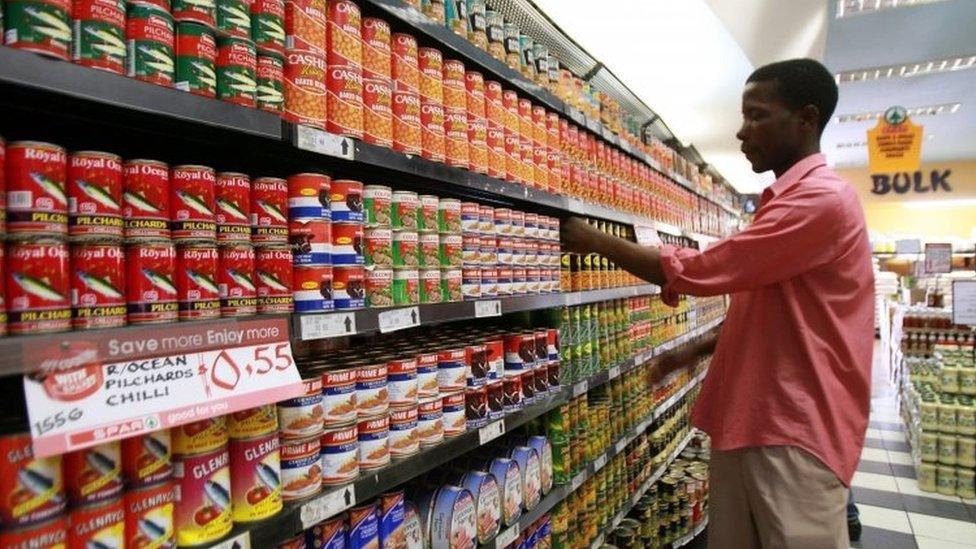
- Published4 January 2018
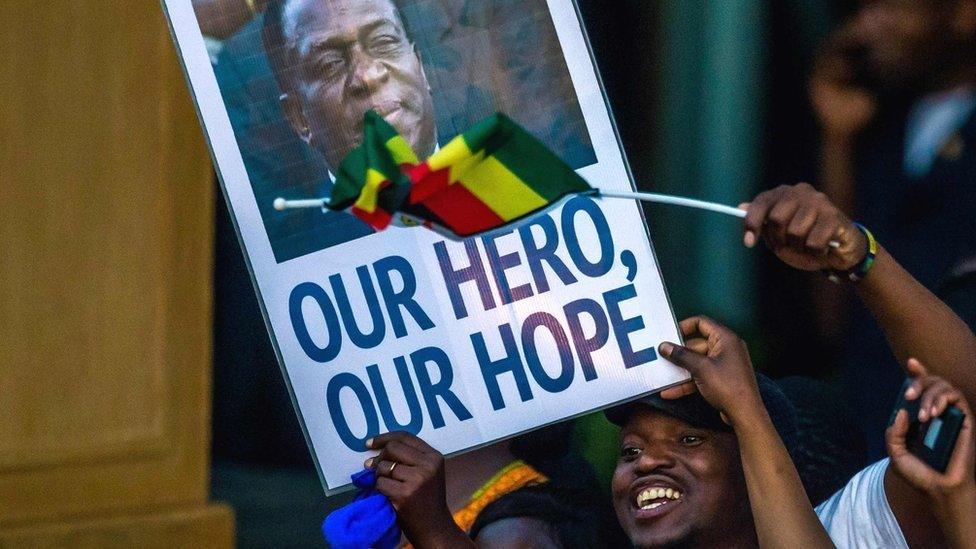
- Published21 November 2017
